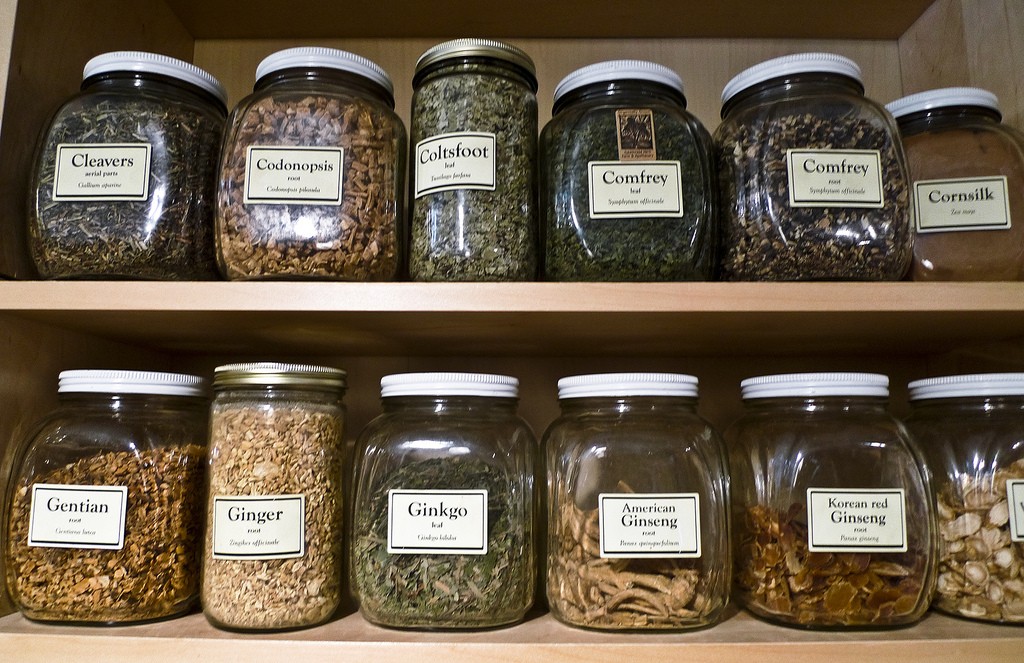A prestigious Wellcome Trust Investigator Award of more than £675k has been awarded to Kent academic Dr Emilie Cloatre for a project to explore the regulation of alternative medicines around the world.
The five-year project will offer a unique in-depth socio-legal exploration of the effects of regulation on traditional, alternative or complementary medicine in practice. It will explore different regulatory strategies that states employ across the globe with a particular focus on case studies in Europe (France/England), West Africa (Senegal/Ghana), and the West Indian Ocean (Reunion/Mauritius).
Dr Cloatre, Co-Director of Research and a Senior Lecturer at Kent Law School, said: ‘I feel very privileged to have been awarded such a prestigious grant and I am really excited to take this project forward. The issues we will look at are highly relevant to contemporary conversations, debates and challenges that are unfolding as policy-makers across the world design or revise strategies to regulate both long-standing traditional practices, and newly emerging, or newly recaptured, alternative medical practices, in the light of persistent or recrudescent patient demand.
‘At the same time, the project will also raise very interesting and broader conceptual questions. Notably it will interrogate how the interface between law and medicine comes to shape the boundaries of what is considered valid, legitimate, safe or acceptable knowledge and health practices, and in turn how these processes are inscribed in broader socio-cultural and historical patterns, including postcolonial processes. The project will provide a series of examples of both the practical complexity of regulating traditional and alternative medicines, and the conceptual significance of these strategies for our broader understanding of the relationship of law with medicine.’
With the help of two full-time postdoctoral researchers, Dr Cloatre aims to encourage a new way of thinking about the relationship between law and medicine, for example by examining the impact of contrasting regulatory frameworks on medical practices, broader public health strategies and access to healthcare. It is hoped the project will foster conversations across academia and generate innovative scholarly knowledge that will inform policy debates.
As part of the project, there will be two workshops; one to interrogate the role of regulators in arbitrating the boundaries of medicine and the other to explore more specifically the role law can play in mediating the tensions between traditional practices and the expectations of modern medicine. There will also be at least two public engagement evenings in Paris and London with additional public events taking place in each of the areas that feature as one of the project’s case studies.
Research findings will be disseminated via journal articles, publications in professional reviews, regular project reports and a website. There will also be a book at the culmination of the project.
An interdisciplinary advisory board for the project (entitled “Law, knowledges, and the making of ‘modern healthcare’: regulating traditional and alternative medicines in contemporary contexts”) comprises: Dr Roberta Bivins (History of medicine, University of Oxford); Dr Olivier Leclerc (Centre de Recherches Critiques sur le Droit, University of St-Etienne); Professor Jean McHale (Healthcare law, University of Birmingham); Prof. Abena Osseo-Asare (History of Science, Anthropology, University of Texas); Dr Ayo Walhberg (Anthropology, University of Copenhagen); and Professor Stacey Langwick (Anthropology, Cornell University).
Dr Cloatre has research interests in law, science and technology; environmental law; governance and regulation; law, political economy and development; legal methods and epistemology; and legal theories and philosophy. She is also principal investigator for the Arts and Humanities Research Council Network Technoscience, Law and Society. Her most recent book, Knowledge, Technology and Law: At the Intersection of Socio-Legal and Science & Technology Studies was co-edited with Martin Pickersgill and published by Routledge in 2014. Dr Cloatre won the Hart Socio-Legal Book Prize for her book Pills for the Poorest: An Exploration of TRIPS and Access to Medication in Sub-Saharan Africa in 2014. She was appointed to the Executive Committee of the Socio-Legal Studies Associaton (SLSA) in April 2015.
The Wellcome Trust is a global charitable foundation dedicated to improving health. They support bright minds in science, the humanities and the social sciences, as well as education, public engagement and the application of research to medicine.
Image credit: NoHo_0309 by Dancing Lemur CC BY-NC 2.0

